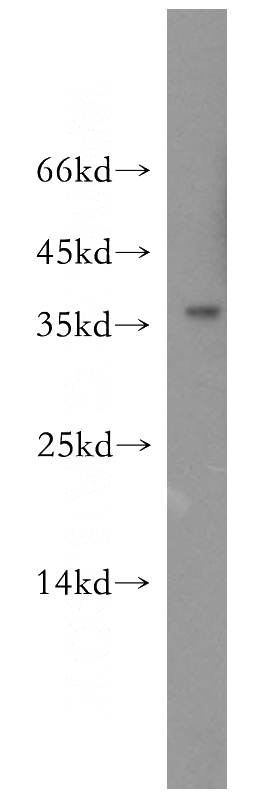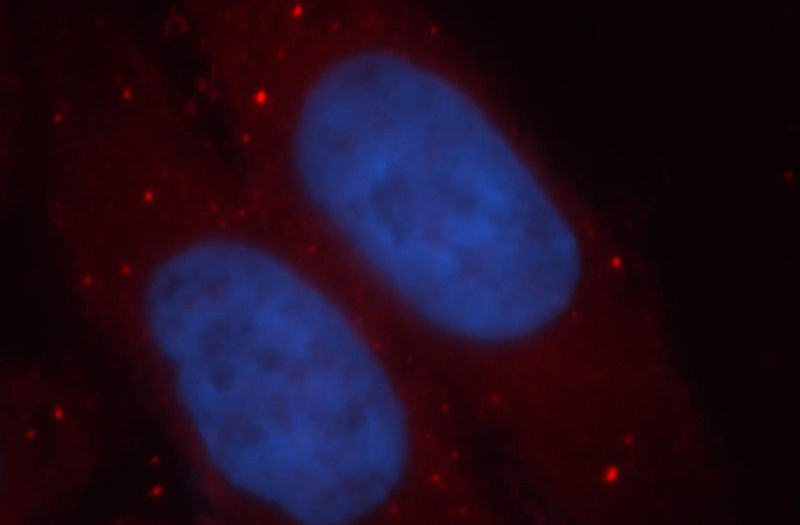-
Product Name
ADH1C antibody
- Documents
-
Description
ADH1C Rabbit Polyclonal antibody. Positive WB detected in mouse liver tissue, rat liver tissue. Positive IF detected in HepG2 cells. Observed molecular weight by Western-blot: 37-45 kDa
-
Tested applications
ELISA, WB, IF
-
Species reactivity
Human,Mouse,Rat; other species not tested.
-
Alternative names
ADH1C antibody; Alcohol dehydrogenase 1C antibody
-
Isotype
Rabbit IgG
-
Preparation
This antibody was obtained by immunization of ADH1C recombinant protein (Accession Number: NM_000669). Purification method: Antigen affinity purified.
-
Clonality
Polyclonal
-
Formulation
PBS with 0.02% sodium azide and 50% glycerol pH 7.3.
-
Storage instructions
Store at -20℃. DO NOT ALIQUOT
-
Applications
Recommended Dilution:
WB: 1:1000-1:10000
IF: 1:10-1:100
-
Validations

mouse liver tissue were subjected to SDS PAGE followed by western blot with Catalog No:107787(ADH1C antibody) at dilution of 1:4000

Immunofluorescent analysis of HepG2 cells, using ADH1C antibody Catalog No:107787 at 1:25 dilution and Rhodamine-labeled goat anti-rabbit IgG (red). Blue pseudocolor = DAPI (fluorescent DNA dye).
-
Background
ADH1C(Alcohol dehydrogenase 1C) is also named as ADH3 and belongs to the zinc-containing alcohol dehydrogenase family.It catalyzes the rate-limiting step for ethanol metabolism: the oxidation of alcohol to acetaldehyde.The ADH1C gene is active in intestine and kidney in fetal and early postnatal life, and persists in the stomach and liver in adult life(PMID:4748759).
Related Products / Services
Please note: All products are "FOR RESEARCH USE ONLY AND ARE NOT INTENDED FOR DIAGNOSTIC OR THERAPEUTIC USE"
